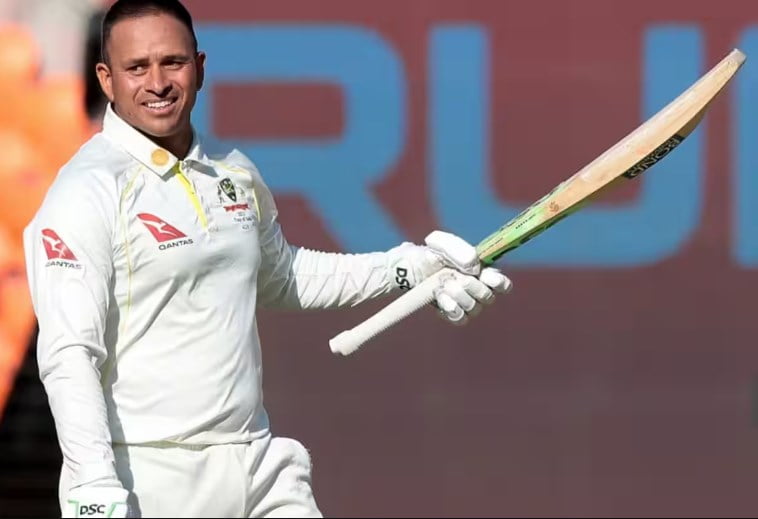Australia is gearing up for a challenging three-match Test series against Pakistan, and ahead of the first Test in Perth on December 14, veteran batter Usman Khawaja is making a statement of solidarity. In the team’s recent training session, Khawaja was spotted wearing shoes adorned with the message, “Freedom is a human right” and “All lives are equal.”

The images of his shoes have circulated on social media, sparking interest and discussions. Khawaja has confirmed his intention to wear the same shoes during the first Test against Pakistan. However, the move might face scrutiny due to existing regulations outlined in the ICC code of Conduct.
The code specifies that players and team officials are not allowed to display messages related to political, religious, or racial activities unless pre-approved by the respective board.
ALSO READ: Mitchell Marsh Celebrates World Cup Win in Style, Eyes Future Opportunities
The 36-year-old’s choice to wear shoes conveying a political message adds an intriguing element to the upcoming Test series. While the sentiment behind the message is rooted in human rights and equality, the cricketing regulations may impose restrictions on such expressions.
#UsmanKhawaja Set to Wear Pro-#Palestine Shoes During #AUSvPAK 1st Test at Perth
Controversy on the cards?#IsraelHamasWar
Watch:https://t.co/lIgAt0Rcs9
— Times Now Sports (@timesnowsports) December 12, 2023
As the defending champions, Australia, led by Pat Cummins, aims for a positive start to the series following their triumphant World Cup campaign. The team’s exceptional performance in the World Cup has set high expectations for their upcoming fixtures. On the other hand, Pakistan, coming off a relatively underwhelming World Cup, will be eager to showcase an improved display under the Test captaincy of Shan Masood.
ALSO READ: Aakash Chopra Asserts Delhi Capitals Need Middle-Order Powerhouse
As the cricketing world awaits the on-field action between Australia and Pakistan, Khawaja’s choice of footwear has already sparked conversations about the intersection of sports and sociopolitical statements, highlighting the potential challenges players may face in expressing their beliefs within the established regulations.
